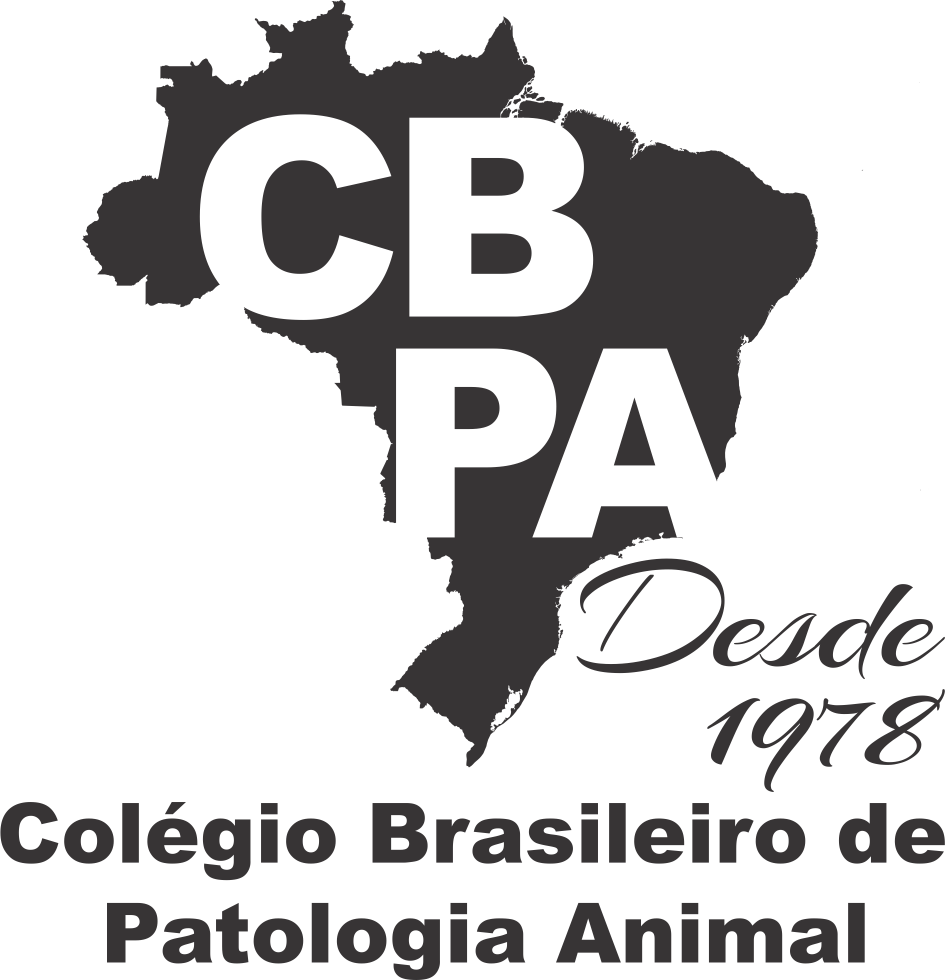Resultado da pesquisa (1)
Termo utilizado na pesquisa M. Bandarra P.M.
#1 - Aborto ovino associado com infecção por Sarcocystis sp., p.393-397
Abstract in English:
ABSTRACT.- Pescador C.A., Corbellini L.G., Oliveira E.C., M. Bandarra P.M., Leal J.S., Pedroso P.M.O. & Driemeier D. 2007. [Ovine abortion associated with Sarcocystis sp. infection.] Aborto ovino associado com infecção por Sarcocystis sp. Pesquisa Veterinária Brasileira 27(10):393-397. Departamento de Patologia Clínica Veterinária, Faculdade de Veterinária, Universidade Federal do Rio Grande do Sul, Av. Bento Gonçalves 9090, Porto Alegre, RS 91540-000, Brazil. E-mail: davetpat@ufrgs.br
Protozoal infection has worldwide distribution and may cause abortion, premature parturition or fetal death in almost all domestic animals. In July 2004, eight Corriedale sheep showed abortion and stillbirth in the third trimester of gestation. Of these reproductive losses, one stillborn male was submitted to the Laboratory of Veterinary Pathology for necropsy investigation. The direct immunofluorescence test for Leptospira sp. was negative. No significant bacteria was isolated from lung and liver by aerobic and microaerobic cultures. Macroscopic lesions were not found in any fetal tissue. The histological lesions were observed mainly in the brain and heart and consisted primarily of severe multifocal nonsupurative encephalitis and nonsuppurative myocarditis. Schizonts of a protozoan parasite consistent with Sarcocystis sp. were found in the endothelial cells and vascular endothelium in several organs. Many schizonts with merozoites arranged in a rosette-like pattern were observed in brain and kidney tissues. In sections stained with periodic acid-Schiff (PAS), the limiting membrane of some schizonts appeared to be weakly PAS-positive. Merozoites and nuclei were PAS-negative. Protozoa did not react immunohistochemically to the antibody anti-Toxoplasma gondii; however, cross-reactivity was observed with Neospora caninum antibody. These findings were consistent with the diagnosis of Sarcocystis sp.
Abstract in Portuguese:
ABSTRACT.- Pescador C.A., Corbellini L.G., Oliveira E.C., M. Bandarra P.M., Leal J.S., Pedroso P.M.O. & Driemeier D. 2007. [Ovine abortion associated with Sarcocystis sp. infection.] Aborto ovino associado com infecção por Sarcocystis sp. Pesquisa Veterinária Brasileira 27(10):393-397. Departamento de Patologia Clínica Veterinária, Faculdade de Veterinária, Universidade Federal do Rio Grande do Sul, Av. Bento Gonçalves 9090, Porto Alegre, RS 91540-000, Brazil. E-mail: davetpat@ufrgs.br
Protozoal infection has worldwide distribution and may cause abortion, premature parturition or fetal death in almost all domestic animals. In July 2004, eight Corriedale sheep showed abortion and stillbirth in the third trimester of gestation. Of these reproductive losses, one stillborn male was submitted to the Laboratory of Veterinary Pathology for necropsy investigation. The direct immunofluorescence test for Leptospira sp. was negative. No significant bacteria was isolated from lung and liver by aerobic and microaerobic cultures. Macroscopic lesions were not found in any fetal tissue. The histological lesions were observed mainly in the brain and heart and consisted primarily of severe multifocal nonsupurative encephalitis and nonsuppurative myocarditis. Schizonts of a protozoan parasite consistent with Sarcocystis sp. were found in the endothelial cells and vascular endothelium in several organs. Many schizonts with merozoites arranged in a rosette-like pattern were observed in brain and kidney tissues. In sections stained with periodic acid-Schiff (PAS), the limiting membrane of some schizonts appeared to be weakly PAS-positive. Merozoites and nuclei were PAS-negative. Protozoa did not react immunohistochemically to the antibody anti-Toxoplasma gondii; however, cross-reactivity was observed with Neospora caninum antibody. These findings were consistent with the diagnosis of Sarcocystis sp.









